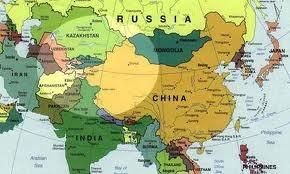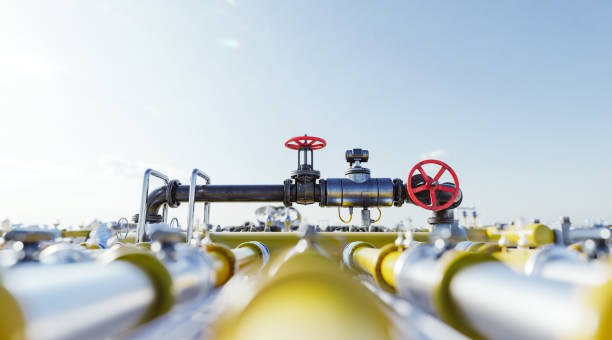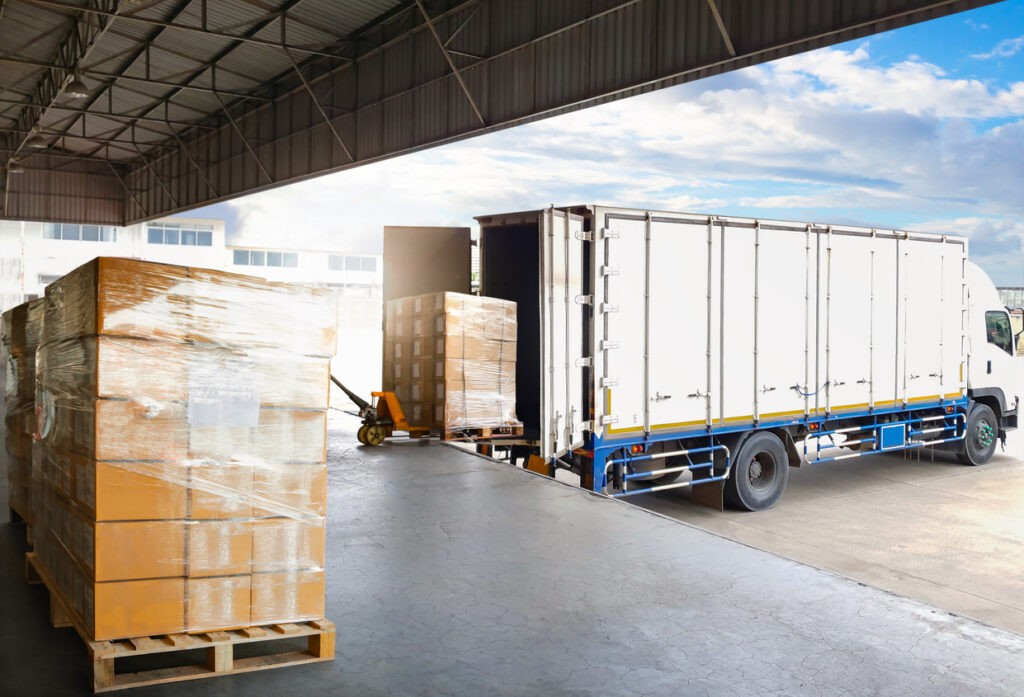BISHKEK (TCA) — The Publisher’s note: Throughout the 19th and 20th centuries, Central Asia was the scene of intense geopolitical struggle and the Great Game between the British and Russian Empires, and later between the Soviet Union and the West, over Afghanistan and neighboring territories. Into the 21st century, Central Asia has become the area of a renewed geopolitical interest, dubbed the New Great Game, largely based on the region’s hydrocarbon and mineral wealth. On top of that, the region now is perhaps the most important node in the implementation of China’s One Belt, One Road initiative through which Beijing aims to get direct access to Western markets. Every week thousands of news appears in the world’s printed and online media and many of them may escape the attention of busy readers. At The Times of Central Asia, we strongly believe that more information can better contribute to peaceful development and better knowledge of this unique region. So we are presenting this Weekly Digest which compiles what other media have reported on Central Asia over the past week.
KAZAKHSTAN
Kazakhstan Appoints a New-Old Government
The new Kazakh cabinet mainly consists of new old faces
Feb 26 — “At the end of January, Kazakhstan’s President Nursultan Nazarbayev called the whole government a group of “cowards” and, for the first time, suggested that the ministers resign. The president singled out the poor economic performance and the dreadful health of the banks in the country. Just weeks later, Nazarbayev suggested again, this time in a more formal setting, that the cabinet quit. Immediately after the presidential request, the whole government presented its resignation and Nazarbayev appointed Vice Prime Minister Askar Mamin as interim prime minister on February 22.” READ MORE: https://thediplomat.com/2019/02/kazakhstan-appoints-a-new-old-government/
KAZAKHSTAN: 19 years’ jail to follow forcible return?
Kazakhstan has sought the extradition and return to the country of Muslims living and working abroad in order to jail them back home
Feb 27 — “Forcibly returned from Saudi Arabia in December 2018, Dilmurat Makhamatov is in pre-trial detention in Shymkent as the KNB secret police investigate him for allegedly “inciting religious hatred” and “propaganda of terrorism” for remarks on Islam. The KNB investigator repeatedly refused to discuss Makhamatov’s case with Forum 18. A court in Kazakhstan’s southern city of Shymkent in mid-February extended for another month the pre-trial detention of Dilmurat Makhamatov. The 40-year-old ethnic Uzbek Sunni Muslim has been in detention since mid-December 2018, when the Kazakh authorities succeeded in forcibly returning him from Saudi Arabia, where he and his family had lived for about 20 years. If eventually tried and convicted, he faces imprisonment for up to 19 years.” READ MORE: http://www.forum18.org/archive.php?article_id=2456
Kazakh Bank Confirms It Hired Trump’s Longtime Lawyer In Fight Over BTA Bank Assets
The political fight over Kazakhstan’s BTA Bank has turned up links to people connected to US President Trump
Feb 28 — “BTA Bank, the financial institution that was once Kazakhstan’s largest and is now at the center of a multinational legal fight, confirmed it hired President Donald Trump’s longtime lawyer to help recover assets that were allegedly laundered in the United States. The confirmation came after Michael Cohen’s surprise revelation, made during daylong testimony on February 27 before a congressional committee that is looking into Trump’s business practices.” READ MORE: https://www.rferl.org/a/kazakh-bank-bta-hired-trump-lawyer-cohen-to-track-assets/29796726.html
Business environment in #Kazakhstan continues to attract EU investment
The growing importance of Central Asia as a major trading region for the EU is confirmed by the level of growth seen in the bilateral trade between the EU and Kazakhstan
Feb 28 — “In January of this year ‘Kazakh Invest’, which provides support services to investors, and which also acts as negotiator on behalf of the Kazakh government, reported 157 projects in the pipeline totalling €34.88 billion. The range of sectors opening up to foreign investment is also growing rapidly as FDI is no longer concentrated in the country’s minerals and raw materials sector, although these remain highly attractive – the World Bank estimates that there are over 5,000 unexplored deposits of mineral reserves still present in Kazakhstan valued at more than €40 trillion – and investors can currently engage in any and all types of business activity.” READ MORE: https://www.eureporter.co/economy/2019/02/28/business-environment-in-kazakhstan-continues-to-attract-eu-investment/
KYRGYZSTAN
Kyrgyzstan: Fighting prejudice one hijab at a time
In Kyrgyzstan, secular conservatives and growing numbers of observant Muslims routinely engage in an ideological battle of words concerning the wearing of the hijab
Feb 21 — “There is nothing like wearing a hijab in Kyrgyzstan to split a crowd. For the fourth year in a row, Islam-themed monthly magazine Umma has organized festivities in Bishkek and Osh, the country’s two largest cities, to mark World Hijab Day. The holiday was dreamt up by New York-based activist Nazma Khan and has been marked every February 1 since 2013 with the stated goal of fostering tolerance.” READ MORE: https://eurasianet.org/kyrgyzstan-fighting-prejudice-one-hijab-at-a-time
U.S. to Send Stolen Assets Back to Kyrgyzstan
The funds were identified during a criminal prosecution of Eugene Gourevitch, a former banker sentenced in June 2014 to five years in prison for wire fraud linked to insider trading
Feb 27 — “The U.S. is sending back to Kyrgyzstan $6 million in assets stolen from the Kyrgyz government by the country’s former leader and his family, the two countries jointly announced. The return of the assets is the latest twist in a globe-spanning criminal saga that had involved the family of a former autocrat of the ex-Soviet republic, and his son, who had allegedly profited from illegal stock-trading tips.” READ MORE: https://www.wsj.com/articles/u-s-to-send-stolen-assets-back-to-kyrgyzstan-11551297924
Kyrgyzstan: Preferential mortgage lending not affordable for state employees
The State Mortgage Company is working poorly on the implementation of the Affordable Housing program because only a limited part of solvent citizens who work in the public sector have received mortgage loans
Feb 28 — “Parliament deputies and experts are dissatisfied with the results of the state mortgage program in Kyrgyzstan because it is not affordable for state employees. The monthly salary of a teacher with three years of experience is about 6,500 soms ($93), and with 30 years of experience — about 15,000 soms. With such salaries, they cannot afford a state mortgage loan, MPs said.” READ MORE: https://www.timesca2stg.wpenginepowered.com/index.php/news/20890-kyrgyzstan-preferential-mortgage-lending-not-affordable-for-state-employees
Kyrgyzstan asks China for grant instead of loan
Kyrgyzstan wants Chinese cash for building its highways, but as grants instead of loans
Feb 28 — “As unease spreads about its mounting pile of debt to China, Kyrgyzstan’s government has switched tack by asking Beijing to lend less and give more. Speaking to parliament this week, Transportation Minister Zhanat Beisenov said that Bishkek hopes the state-run Export-Import Bank of China might be persuaded to part with $56 million in “grant form” to help complete a long-delayed major road project.” READ MORE: https://eurasianet.org/kyrgyzstan-asks-china-for-grant-instead-of-loan
TAJIKISTAN
CHINA’S BASE IS A STRATEGIC SETBACK FOR INDIA’S EURASIAN ASPIRATIONS
India has unsuccessfully sought to establish its own military base in Tajikistan, and the Chinese base in Tajikistan constitutes a severe setback for New Delhi’s ambition to increase its strategic footprint in Central Asia
Feb 28 — “An investigative report by The Washington Post recently revealed that Chinese troops have been stationed for at least three years on Tajikistan’s southeastern border, less than 30 km. from Pakistani-administered Kashmir, across the narrow strip of northeastern Afghanistan known as the Wakhan Corridor, which extends to China and separates Tajikistan from Pakistan and Gilgit-Baltistan. While neither Beijing nor Dushanbe have acknowledged China’s military presence alongside the panhandle, the objective of the People’s Liberation Army (PLA) base seems to be to prevent jihadi Uighur militants returning from Syria and elsewhere to re-enter China’s restive Xinjiang province.” READ MORE: https://www.jpost.com/Opinion/Chinas-base-is-a-strategic-setback-for-Indias-Eurasian-aspirations-582007
Tajikistan and its terrible, horrible, no good, very bad internet
Tajikistan’s internet continues to get slower, ranking among the worst in the world
Feb 28 — “At the start of this year, the internet in Tajikistan did something even the most jaded pessimists could barely have imagined possible. It got worse. Speeds are dropping. The government continues to engage in bouts of censorship, depriving users of access to their favorite websites. From time to time, social media websites like Twitter, video-hosting platform YouTube and local news sites Asia-Plus and Avesta are blocked.” READ MORE: https://eurasianet.org/tajikistan-and-its-terrible-horrible-no-good-very-bad-internet
Tajikistan’s Troubled Pamir Region
In the Pamir region, which makes up 45 percent of Tajikistan’s territory but only about 3 percent of its population, conflict between the central government and former opposition commanders has occurred on a regular basis since the Tajik civil war of 1992-97
March 1 — “Mainstream media coverage of Tajikistan is patchy, puts emphasis on geopolitics, and is often limited to incidences of violence. For instance, in July 2018 a deadly, Islamic State-inspired attack on foreign cyclists put Tajikistan in the headlines of various international media. In 2015, armed conflict between government forces and a group surrounding the deputy defense minister gained attention, and in 2012 open fighting between the Tajik army and militias of former opposition commanders in the Pamir region raised widespread concern.” READ MORE: https://thediplomat.com/2019/02/tajikistans-troubled-pamir-region/
TURKMENISTAN
Turkmenistan: Drifting without a plan
In its ‘Akhal-Teke: A Turkmenistan Bulletin’, Eurasianet reviews the main news and events in the Central Asian country for the previous week
Feb 26 — “The president has decreed that Turkmenistan’s private sector be the new big thing, so the doling out of contracts is becoming a familiar routine. Gurbanguly Berdymukhamedov’s yen for cycling inspired him to order the erection of a new grotesquery last fall – a tottering monumental trifle of gold-leafed cyclists, peace symbols and frolicking Akhal-Teke horses. The task of confecting this creation was this week awarded to Sport Yyldyzy, which also goes by the Russian name Zvezda Sporta.” READ MORE: https://eurasianet.org/turkmenistan-drifting-without-a-plan
Turkmenistan: Suicide of Coca-Cola executive casts more gloom
The ongoing economic crisis in Turkmenistan has taken its toll on the investment climate and a particular investor operating in the country
Feb 26 — “The apparent suicide of a Turkish man who headed Coca-Cola’s bottling and distribution operation in Turkmenistan is drawing more unwanted attention on the hermit state’s bleak investment climate. According to several media reports, confirmed by Eurasianet sources in Turkmenistan, Goktug Gozutok hurled himself out of a window in Ashgabat’s Oguzkent hotel.” READ MORE: https://www.timesca2stg.wpenginepowered.com/index.php/news/20880-turkmenistan-suicide-of-coca-cola-executive-casts-more-gloom
Turkmenistan redirects its oil exports from Azerbaijan to Russia
Russia seeks to maintain and strengthen its influence on former Soviet republics — including Turkmenistan and Azerbaijan — in the oil and gas sphere. This gives Ashgabat an opportunity to resume natural-gas export to Russia
March 1 — “Swiss firm Vitol and Azerbaijan’s state oil company SOCAR have been embroiled in a quarrel over the transportation of crude oil from Turkmenistan. While the respective companies and government officials from Azerbaijan, Russia and Turkmenistan have kept silent on the matter, media outlets tend to suggest that the dispute was sparked by commercial concerns (Report.az, February 9, 12, 13; EurAsia Daily, February 15). Nevertheless, the preceding and ongoing developments surrounding the oil transit disagreement suggest that the issue has a considerable political dimension.” READ MORE: https://www.timesca2stg.wpenginepowered.com/index.php/news/20894-turkmenistan-redirects-its-oil-exports-from-azerbaijan-to-russia
UZBEKISTAN
Follow in Joanna Lumley’s footsteps on a Silk Road adventure
Joanna Lumley’s ITV documentary Silk Road Adventure gives major wanderlust when the actress and TV star travelled to up-and-coming Central Asian country of Uzbekistan
Feb 26 — “After the Uzbek government announced it was extending visa-free travel to a number of countries including the UK in January, we couldn’t think of a better year to follow Joanna’s footsteps to the fascinating country that sits at the intersection of East and West.” READ MORE: https://www.goodhousekeeping.com/uk/lifestyle/travel/a26514947/uzbekistan-silk-road-tour/
Uzbekistan Central Bank Looks To Increase Gold Reserves To 430 Tonnes In Five Years
Uzbekistan is the world’s ninth-largest gold producer and has the eighth-largest gold reserves
Feb 28 — “After last year’s unprecedented central-bank demand for gold, another nation is jumping into the marketplace to build its gold reserves over the next five years. According to international media reports, Uzbekistan expects to increase its gold reserves to 430 tonnes between 2020 and 2024 as the country looks to develop its domestic gold deposits. The reports said that purchase could start this year as the central bank plans to buy 81.37 tonnes of gold.” READ MORE: https://www.kitco.com/news/2019-02-28/Uzbekistan-Central-Bank-Looks-To-Increase-Gold-Reserves-To-430-Tonnes-In-Five-Years.html
World Bank Optimistic About Uzbekistan
Uzbekistan is making strong progress implementing economic reforms to support growth and build opportunities for its citizens, World Bank Vice-President for Europe and Central Asia said
March 1 — “Uzbek and World Bank officials are all humming the same tune: There’s no going back from reforms. Is it that simple?” READ MORE: https://thediplomat.com/2019/03/world-bank-optimistic-about-uzbekistan/
AFGHANISTAN
The new Afghanistan will be built on ceasefire solutions and Taliban trade-offs
In Afghanistan, it is important to begin to think about what kind of basic trade-offs could satisfy the core demands—and mitigate the central insecurities and worries—of both the Afghan government and the Taliban, write Christopher Kolendra and Michael O’Hanlon
Feb 27 — “To his credit, U.S. envoy Zalmay Khalilzad has made remarkable progress in recent peace talks with the Taliban. It appears the latter group has now renounced any willingness to tolerate extremists from ISIS or al-Qaida on Afghan territory under any future government in which it may have a key role. The United States has correspondingly indicated a willingness to downsize its military presence over time, and perhaps ultimately end it altogether, when conditions are right. We hope credible assurances on human rights are addressed, too.” READ MORE: https://www.brookings.edu/blog/order-from-chaos/2019/02/27/the-new-afghanistan-will-be-built-on-ceasefire-solutions-and-taliban-trade-offs/
Under Peace Plan, U.S. Military Would Exit Afghanistan Within Five Years
It is now evident that the US has no other choice but to leave Afghanistan, as there is no military solution to the Afghan war
Feb 28 — “All American troops would withdraw from Afghanistan over the next three to five years under a new Pentagon plan being offered in peace negotiations that could lead to a government in Kabul that shares power with the Taliban. The rest of the international force in Afghanistan would leave at the same time, after having mixed success in stabilizing the country since 2001.” READ MORE: https://www.nytimes.com/2019/02/28/us/politics/afghanistan-military-withdrawal.html
Afghans Are Cheering for an Indian Win
India is viewed favorably by many Afghans as the enemy of their enemy
Feb 28 — ““Anyone who takes the side of Pakistan and blames India, please unfriend [me] from Facebook, otherwise I will [say things that] upset you,” Mohammad Iqbal Afzali wrote on social media on Tuesday. A quick scroll through his Facebook feed reveals a strong stance in support of India’s recent cross-border airstrikes on Jaish-e-Mohammed targets in Balakot, Pakistan, following the Feb. 14 terrorist attack on an Indian Army convoy.” READ MORE: https://foreignpolicy.com/2019/02/28/afghans-are-cheering-for-an-indian-win/
Negotiations Are the Best Way to End the War in Afghanistan
The U.S. government and the Taliban are close to agreement on a partial framework of a peace deal
March 1 — “In 2012, while I was serving as senior adviser to the State Department special representative for Afghanistan and Pakistan, I met in Istanbul with a group of Iranian scholars and former diplomats. After listening to the Iranians protest the United States’ purported plans to establish permanent bases in Afghanistan, I told them that they were worrying about the wrong thing. Their problem was not that U.S. forces would stay forever; it was that, sooner or later, they would leave, and the Iranians and their neighbors would once again be stuck with a problem that they could not solve.” READ MORE: https://www.foreignaffairs.com/articles/afghanistan/2019-03-01/negotiations-are-best-way-end-war-afghanistan
WORLD
In Central Asia, Politics By Way of Social Media
New research on youth in Central Asia attempts to untangle young people’s political attitudes and preferences
Feb 22 — “Two new publications put out by George Washington University’s Central Asia Program tackle an understudied population in Central Asia: youth. Although more than half of Central Asians are younger than 29, we know relatively little about young people’s attitudes and preferences compared to other countries in Eurasia.” READ MORE: https://thediplomat.com/2019/02/in-central-asia-politics-by-way-of-social-media/
Sino-Russian Alignment in Reality: The Case of Central Asia
For now, Moscow and Beijing have opted for a marriage of convenience in Central Asia: Beijing foots the majority of the bill for economic development, while Russia dominates the security sphere
Feb 27 — “At a Senate Intelligence Committee hearing on Tuesday, January 29, U.S. Director of National Intelligence, Dan Coats, when unveiling the latest U.S. Worldwide Threat Assessment report warned that “Moscow’s relationship with Beijing is closer than it has been in many decades,” The statement and report has spurred heated debate over the nature of Sino-Russian relations and President Trump’s disdain of the Intelligence Community, and its implications for U.S. national security. Much of the analysis takes a macro perspective, discussing what the Assessment tells us about the future of the 21st Century world-order.” READ MORE: https://smallwarsjournal.com/jrnl/art/sino-russian-alignment-reality-case-central-asia









